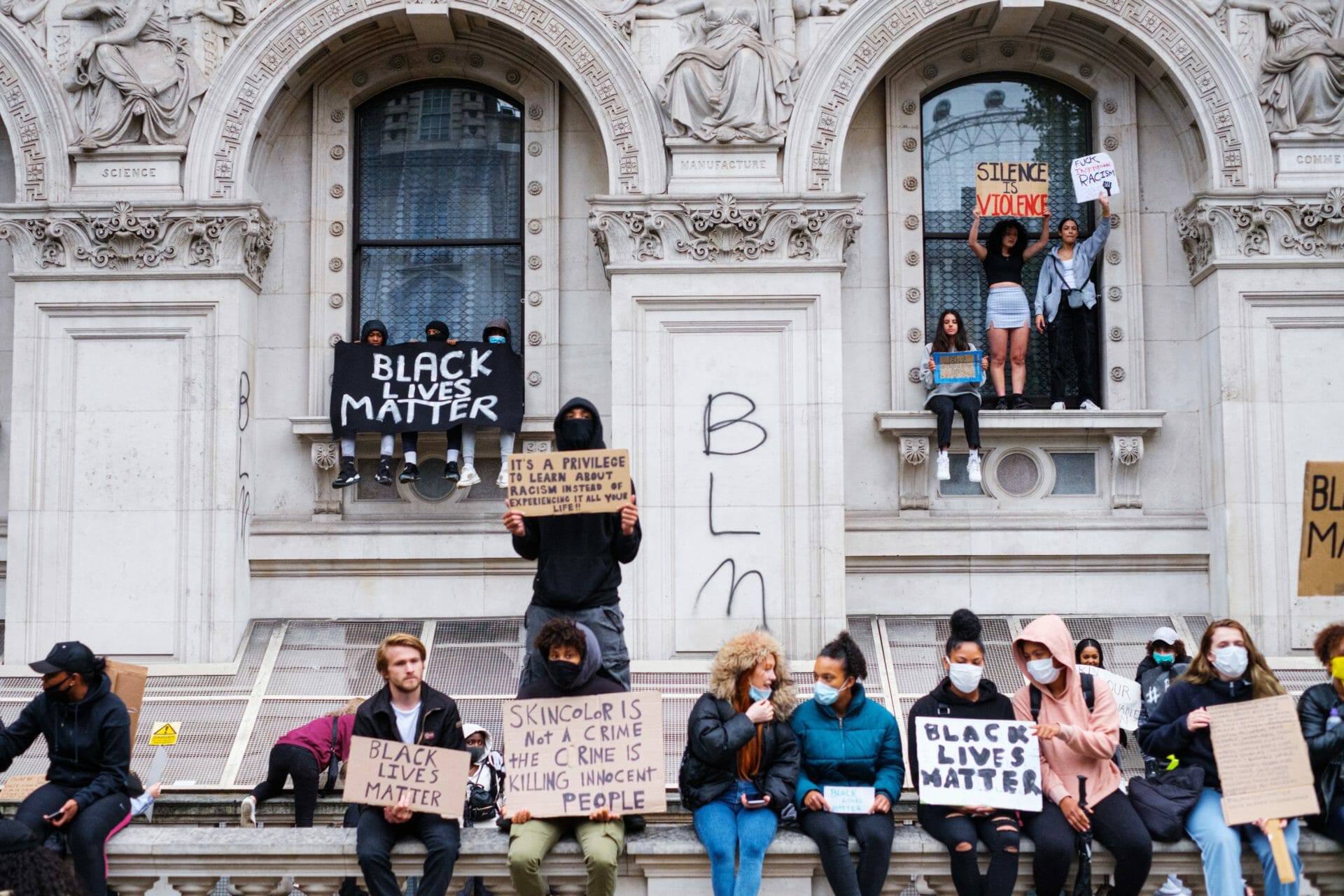
Photo by Ehimetalor Akhere Unuabona on Unsplash
Favor the new oppressed
I enjoyed the rare opportunity and pleasure to study at and receive a graduate degree from the oldest graduate seminary associated with the Religious Society of Friends, the Earlham School of Religion. It was there that a Quaker philosopher instilled in me a principle which has stayed with me throughout my life, and which ceaselessly inspires my thinking about world and individual events. He taught: “Always favor the oppressed, and if the oppressed become freed from oppression and become the oppressors, favor the new oppressed.”
I could see how Jesus, Moses, and the entire Bible encourage us to favor the oppressed. The Psalms teach that “The Lord works vindication and justice for all who are oppressed” (Psalm 103:6). Clear as a bell: favor the oppressed. But it was the add-on that grabbed my attention, shook me by the shoulders, and etched a lasting value on my soul: If the oppressed become freed from oppression and become the oppressors, favor the new oppressed. I cannot release the sound of the Quaker’s voice in my mind, and it replays over and again. If the oppressed become freed from oppression and become the oppressors, favor the new oppressed.
Since the word was first spoken to the Jews, consider God’s message to our spiritual ancestors: Judaism holds that “You shall not wrong or oppress a resident alien, for you were aliens in the land of Egypt” (Exodus 22:21). An alien is what they called strangers, people who are not from where you live. You’re not from around here, are you? Do no wrong nor harm to another who is not from around here—migrants, immigrants, strangers, people in need.
Exodus portrays God speaking to the Jews to remember from whence they came and how awfully they were treated. So therefore, you who were oppressed, treat others – even and especially those different from you – with respect by doing no wrong, and certainly by not oppressing anyone else. Favor the oppressed, and if the oppressed become freed from oppression and become the oppressors, favor the new oppressed. Mine may be an interesting child’s curiosity, but I’ve always wondered that if the Jews arrived and took the land away from the Canaanites and thereby oppressed them, did the once oppressed-by-Egypt Jews become new oppressors? Jump ahead centuries: Do some Jews of Israel today in any way oppress their Palestinian neighbors? In which case, who should we favor? The Quaker philosopher (and Christians) would answer: Favor the new oppressed.
I think too of the Puritan separatists who saw themselves oppressed in the land of the Church of England, who stepped off the boat onto the rock in 1620 at Plymouth, Massachusetts, and became the new oppressors… leading to genocide of the native Americans. Perhaps they never thought of themselves as oppressors, but that is what happened, by design or by default. Who should we favor? Favor the new oppressed, the Native Americans.
A Quaker philosopher at the Earlham School of Religion instilled in me a principle which has stayed with me throughout my life, and which ceaselessly inspires my thinking about world and individual events. He taught: “Always favor the oppressed, and if the oppressed become freed from oppression and become the oppressors, favor the new oppressed.”
Those who are black or non-white face oppression in 2021 society. How do we as followers of Jesus stand with them, speak up for them, and favor them in their oppression when all too many in the church possess blinders or ear plugs to the oppression of black and non-white people? Who should we favor? Favor the new oppressed. “Rise up, O Lord; O God, lift up your hand. Do not forget the oppressed” (Psalm 10:12). Let us, people of the Lord, rise up and join with the Lord in not forgetting the oppressed. Let us stand with, speak up for, and join arms with those who are oppressed… along with God. There is a God-like reason to proclaim that Black Lives Matter.
There have been times when people have been persecuted for religious freedom, but some of those rise up to become new oppressors of others. There are Christians who oppress others who are gay, lesbian, bisexual, transgender, or questioning. Sadly, they have become new oppressors, and therefore our call as Christ’s ambassadors is to leave them and to favor the very ones they oppress. We shall favor the new oppressed. We must stand with, speak up for, and favor the LGBTQ oppressed.
Theologian Karl Barth is noted for advising believers to “Take your Bible and take your newspaper, and read both. But interpret newspapers from your Bible.” As we examine today’s news and consider who are the oppressors and who are the oppressed, we are well-served to find ourselves standing with the new oppressed. Look at your headlines this day. Who seems to be the oppressors? Who appears to be the oppressed? Your calling, as a child of God, is to favor the new oppressed. “Always favor the oppressed, and if the oppressed become freed from oppression and become the oppressors, favor the new oppressed.”
The Psalmist implores God not to forget the oppressed. The Psalmist prays not for the high and mighty, but for those on the margins of society. He asks God not to forget those who have the least. A faith which is based solely on a person’s intimate relationship with God or a warm personal fulfillment is insufficient. Faith must lead us out of ourselves and into a caring for and sharing with the oppressed. This was the point of one of Jesus’ most important parables, in Mathew 25. He tells how God will judge people. It is not what we might expect. It is not about how well people engage in religious practices, master the Scriptures, or even follow the commandments. No, rather, it is about favoring the oppressed. Jesus’ whole point is that what you do for the child, you do for the parent, for God. What you do for the oppressed, you do for God. Consider his parable, as presented in The Message (Matthew 25:36-40):
“I was hungry and you fed me,
I was thirsty and you gave me a drink,
I was homeless and you gave me a room,
I was shivering and you gave me clothes,
I was sick and you stopped to visit,
I was in prison and you came to me.”
“Then those ‘sheep’ are going to say, ‘Master, what are you talking about? When did we ever see you hungry and feed you, thirsty and give you a drink? And when did we ever see you sick or in prison and come to you?’ Then the King will say, ‘I’m telling the solemn truth: Whenever you did one of these things to someone overlooked or ignored, that was me – you did it to me.’”
That was me, says God. What you did for the oppressed, you did for me!
So, in our prayers, thoughts, and actions, let us not forget the oppressed. And should the oppressed become freed from oppression and become the oppressors, favor the new oppressed.
The views expressed are those of the author and not necessarily those of American Baptist Home Mission Societies.



